.jpg)
RICOH Women’s British Open
The Old Course, St. Andrews
Fife, Scotland
Pre-tournament Notes and Interviews
July 30, 2013
Inbee Park, Rolex Rankings No. 1
Stacy Lewis, Rolex Rankings No. 2
The iconic Swilcan Bridge is waiting to greet its next champion this week, as the LPGA returns for a second time to The Old Course at St. Andrews for the RICOH Women’s British Open. Six years after Lorena Ochoa became the first woman to win a major championship contested on the famous Old Course, there is once again significant history on the line this week at the Home of Golf.
Rolex Rankings No. 1 Inbee Park is trying to become the first golfer – male or female—to capture four professional major championships in a season with a victory at this week’s RICOH Women’s British Open. Her hunt for the “Grand Slam” has drawn worldwide attention and focused the eyes of the media on women’s golf.
Park’s impressive run of consecutive major championship titles began at the Kraft Nabisco Championship in April where she captured a four-stroke victory before leaping into Poppie’s Pond at Mission Hills Country Club in Rancho Mirage, Calif. She continued the streak last month at the Wegmans LPGA Championship, where 36 holes of regulations – and more – were needed on Sunday. Park defeated Catriona Matthew in a three-hole, sudden-death playoff to claim her second major of the season at Locust Hill Country Club in Pittsford, NY. And at the U.S. Women’s Open, Park wowed the golf world when she defeated I.K. Kim by four shots to become only the second LPGA player in history to capture three consecutive major titles.
For Park to continue that impressive majors streak this week in Scotland, she will have to best 143 of the top golfers in the world as they compete for a $2.75 million purse.

.jpg)
Everyone loves Inbee… even the toll collector. As Inbee Park’s star rises, so does the attention she receives in her native Korea and worldwide. As the winner of the Tour’s first three majors in 2013, Park returned to Seoul last week and was greeted with a celebrity’s welcome with throngs of media at the airport and fans recognizing her on the streets.
“I feel like a lot more people recognize me now,” Park said. “I was driving by the toll gate and some lady was giving me a ticket, a toll ticket and she was like, "Oh, are you Inbee Park?" and she was stopping my car. It's cool to be recognized and to have a lot of fans and I think that really helps me.”
As the requests pour in for Inbee’s time, the 25-year-old continues to appear calm and collected in the face of massive attention. On Tuesday, she spent time with ESPN, Golf Channel, BBC and CNN in addition to a 30 minutes press conference. But the real test comes when she tees off on Thursday in her quest to achieve the Grand Slam.
“Everybody is expecting me to play well, and I have got so many people praying for me, so many people wishing me luck; it's amazing how many people are on my sides, and I think that really comes to my advantage,” Park said. “It really gives me a lot of good energy to come into this weekend and it really motivates me and gives me inspiration to play well this week. It's huge everywhere, I can feel it. But we'll see after this week.”
Commissioner Michael Whan’s take on Inbee Park’s chase of the “Grand Slam”: “I find it strange that we are struggling not to call this a Grand Slam if Inbee Park wins this week’s RICOH Women’s British Open. If a player had won all four global majors in 2011, we would have declared her the Grand Slam winner and she would be posing with all four trophies. If Inbee wins four majors this season, why wouldn’t we call it the same thing? If she wins four, she’ll go to The Evian with a chance at the Super Slam. Winning four major championships in a season – the Grand Slam – would be one of the greatest accomplishments in modern sports and we wish Inbee the best of luck.”

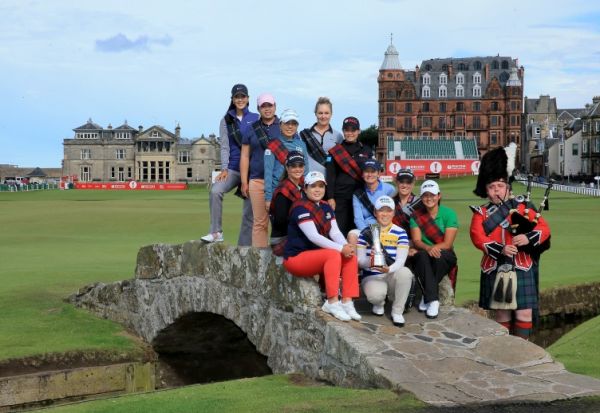 Major Events Looming. In past years, the RICOH Women’s British Open signaled the end of the major championship season for the LPGA. This season, it serves the fourth of five majors on the LPGA’s calendar with The Evian Championship coming up in September. For many U.S. and American players, another big tournament – The Solheim Cup – looms large just two weeks from now. So with all the big events on the LPGA docket this year, how do players peak at the right times?
Major Events Looming. In past years, the RICOH Women’s British Open signaled the end of the major championship season for the LPGA. This season, it serves the fourth of five majors on the LPGA’s calendar with The Evian Championship coming up in September. For many U.S. and American players, another big tournament – The Solheim Cup – looms large just two weeks from now. So with all the big events on the LPGA docket this year, how do players peak at the right times?
“You really have to kind of manage your energy level more and there's times where you want to make sure your game is peaking,” Stacy Lewis said. “It's definitely been a little different this year, but at the same time, it's kind of fun, because you have more things to look forward to.”
The LPGA has worked in recent years to spread out of the major championships between April and September to provide more build up to each specific event.
“It's good for the Tour because we've got that exposure spread out over a year instead of just being in two months,” Lewis said.
Duplicate performance? Stacy Lewis wasn’t a member of the LPGA Tour in 2007 when St. Andrews played host to the RICOH Women’s British Open for the very first time.
But top-ranked American is no stranger to creating magic at the Home of Golf. Lewis was a member of the victorious 2008 U.S. Curtis Cup team when the matches were contested at the Old Course. The Woodlands, Texas native put on quite a show that week too, becoming the only player in history to go 5-0 in her matches.
“I have a lot of good memories,” Lewis said. “I played a practice round [Monday] with Alison Walshe, and we played three matches together during that week and won them all. It was cool. We kind of went back and talked about shots we hit, holes we won matches on and things like that.
“So it's really cool to be back, and I remember a lot of the course, which is nice. Because normally coming into the British Open, I don't know new of the golf courses, so coming here knowing the course is really nice.”
Lewis has steadily improved her performance at the RICOH Women’s British Open over the past few years. After missing the cut in her first British in 2009, Lewis has tallied the following finishes: T31 in 2010, T11 in 2011 and T8 for 2012.
“This style of golf is just so different,” Lewis said. “You really have to learn how to play here. You have to learn how to manage your game and how to play certain shots and stay patient. That's the big key out here is that you're going to get some funky bounces and you just kind of have to roll with it and go into it with an open mind, knowing that if the wind blows, it's going to play really hard; if the wind doesn't blow, you're going to have to make some birdies.
“Your game plan changes every day, and it takes playing a lot of it to figure it out.”
 Talked about Tweet: It wasn’t long into Inbee Park’s press conference on Tuesday afternoon when someone asked about one of the Tweets that the 25-year-old sent out last week during her trip to Korea. Of course, when you tweet a picture of yourself with a Ferrari, that’s bound to draw some attention.
Talked about Tweet: It wasn’t long into Inbee Park’s press conference on Tuesday afternoon when someone asked about one of the Tweets that the 25-year-old sent out last week during her trip to Korea. Of course, when you tweet a picture of yourself with a Ferrari, that’s bound to draw some attention.
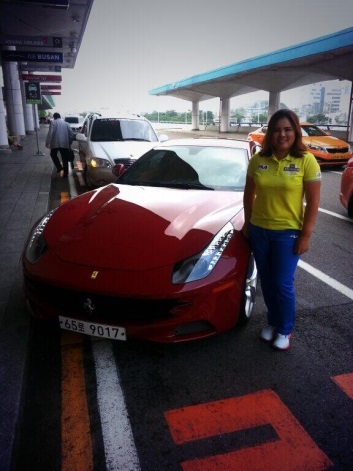 “With my Ferrari FF♥” -- @InbeePark wrote on July 24.
“With my Ferrari FF♥” -- @InbeePark wrote on July 24.
So did Park splurge and buy herself a Ferrari after such a hot start to the season?
“No, I didn't buy anything for myself,” Park said. “I got a couple of very good presents in Korea. When I was there last week, I got a new Ferrari and I got a gold putter.”
Not bad take-home gifts for Park and she was asked if she had a favorite of the two.
“I like both,” she said with a smile.
Quotable: “As a player, you would like to know if she's human a little bit, to see if she actually feels the nerves like the rest of us do.” – Stacy Lewis on Inbee Park
Of Note…There are six amateurs in the field this week, including top-ranked amateur Lydia Ko….A total of 16 players qualified on Monday for this week’s RICOH Women’s British Open. The winner of Monday’s qualifier was 17-year-old Xiyu Lin, who is a member of the Ladies European Tour. Lin shot 65 at Kingsbarn Golf Links to earn the top spot…All of the major champions from the past six years are in the field with the exception of Lorena Ochoa. The 2007 RICOH Women’s British Open winner is retired from professional golf.
INBEE PARK, Rolex Rankings No. 1
COLIN CALLANDER: Ladies and gentlemen, we have Inbee Park, the world No. 1 with us. Inbee comes in having won the first three legs of the Grand Slam, and you finished I believe 11th the last time the Open was here. Are you glad to be back?
INBEE PARK: Yeah, I'm glad to be back here at St. Andrews and looking forward to playing this week.
COLIN CALLANDER: You're obviously going to be bombarded with questions about the Grand Slam; does that make it a little bit more difficult to perform well this week?
INBEE PARK: I'm just really getting used to it, because I've heard about St. Andrews so many times before I came here this week.
At first, I felt the pressure, but then, you know, as the time goes by, the more experience I get, I really started to get used to it, and once I get on the golf course, I don't get really think about it so much. When I'm off the golf course, I feel the pressure, but I try to concentrate on the golf course.
Q. As we were hearing earlier on from Stacy Lewis, that she found it very difficult to tell if you were playing well or playing badly, because you seem so even tempered, is that part of your secret this year, because you don't get too up or too down, depending if your golf is good?
INBEE PARK: I think that's been my personality forever since I was a little kid. My emotions don't express so much on my face.
Yeah, that's just how I play golf, and it's been working really good on the golf course, so I think found myself, I figured that it was going to be very good on the golf course, and that's why I think I'm that way.
I think it helps a lot, you know, when you are on the golf course when your emotions are very calm. Your feelings are very calm, so I think it helps you to play the game a little bit more consistent.
Q. People talk about pressure, and they often mean pressure from outside influences, but presumably, as a top professional golfer, you bring a lot of your own pressure to play the best golf you can every day.
INBEE PARK: Yeah, obviously it is tougher to play under pressure than without the pressure. This is what I love to do, and if the pressure is something that comes with playing good golf, that's something a professional golfer has to handle, something that I need to handle for doing something I like.
So, yeah, I love to do that ‑‑ instead of, you know, it's much better than playing in the first group out and nobody is watching than having the pressure; yeah, I think I would be playing in the last group and feel the pressure all the time.
Q. We would just like to say that we believe that your putting is the greatest part of your game, and wondering if you have received any tips from fellow pros, maybe even Japanese players throughout the years?
INBEE PARK: I try to learn something from other people's stroke or other people's putting, but maybe they give me a tip ‑‑ but I try to look for like Ai Miyazato's putting stroke for her rhythm and other people's putting strokes, you can learn something from them. I haven't really asked for advice, but I'm sure if I asked for advice, they would have given me some advice.
Q. You talked about since you were a little girl, you were calm, but you've also consulted with a sports psychologist a little bit. I wonder some of the things you've talked to her about and anything you've talked to her about going into this week.
INBEE PARK: Yeah, she makes me a happier person. She makes me a happier person on the golf course and outside the golf course. She teaches me how to handle the pressure on the golf course, and how to enjoy the game of golf, what things to concentrate when I'm on the golf course.
It changes every week, but we try to sort it out. She's here this week ‑‑
COLIN CALLANDER: What's the name of your psychologist?
INBEE PARK: Sookyung Cho.
Q. Am I right that you went to Korea ‑‑ are you a little worried that that's a hectic schedule? When you did you actually get into the U.K.?
INBEE PARK: I was tired physically, but I was a lot more happier mentally being able to see friends and family and being able to communicate with my fans when I get back home.
Physically, I'm a bit tired, but mentally, I was a lot more happier and that gives me a lot of energy coming into this week. So I'm trying to take the positives out of it.
Q. Also, have you been able to practice the specific kind of game you need for this course? It's a different kind of game from what you usually play.
INBEE PARK: Yeah, obviously we have to ‑‑ the wind is a factor this week. I'm kind of a low‑ball flight hitter, and I think this golf course really suits my eye and this golf course really suits my game. St. Andrews has big greens with some big ridges. You're going to hit a lot of greens here, and you're going to have putts that are 30 yards long, 20 yards long. You have to be a good pace putter.
I'm going to hit a lot of putts, so I think it kind of comes to my advantage that I get to use my putter a lot on this golf course. Being in the bad weather, my ball flight is very low, so that also comes into my advantage.
Q. I wonder if you can just share with us how big this story is back home in Korea? You were there last weekend; is the possibility of a Grand Slam, is it leading the sports news? Is it leading the news?
INBEE PARK: Can you repeat the question?
COLIN CALLANDER: Is it a big story, the Grand Slam in your country?
INBEE PARK: If I would achieve?
COLIN CALLANDER: At the moment.
INBEE PARK: At the moment I think I'm getting a lot of attention from everywhere, especially back home in Korea, they are really ‑‑ yeah, it's really big in Korea.
Everybody is expecting me to play well, and I have got so many people praying for me, so many people wishing me luck; it's amazing how many people are on my sides, and I think that really comes to my advantage.
It really gives me a lot of good energy to come into this weekend and it really motivates me and gives me inspiration to play well this week. It's huge everywhere, I can feel it. But we'll see after this week.
Q. Could you talk about the difference between Korean temperaments and western temperaments?
INBEE PARK: There is calm Korean players and there is not calm Korean players and there is calm western players. It's tough to say which side is better.
Q. In general, I've never seen Korean players tossing their clubs around the place or look temperamental on the surface; Koreans do seem to keep their feelings under wraps, don't they?
INBEE PARK: We always learn to be calm on the golf course and not to be so mad on the golf course since we were young kids.
So we are used to controlling our feelings and being calm on the golf course. We see a lot of players ‑‑ some players get mad over the ball, but they don't express so much on the golf course I think.
Q. You mentioned when you're between the ropes, it's the calmest time for you. Everything else, the interviews and stuff, is that more stressful in some ways than going out and concentrating on playing golf?
INBEE PARK: Sometimes all the medias and all the interviews, those are the toughest thing for me, but once you really start to do it a lot and start to get used to it, I can find some fun in those parts, too. Because golf and playing golf on the golf course is the most easiest thing for me, and that's something I'm so used to, that's why it was always easy. But I'm getting used to the other parts of golf, also.
Yeah, it's getting there, but obviously yeah, I am the happiest when I'm on the golf course.
Q. I'm writing a story about Lorena winning here in 2007. She's not here to repeat her feat in 2007, but going back to 2007 and coming here for the first time, as a top player in the world, do you think that it was meant to be?
INBEE PARK: For Lorena? She was playing so good, I remember that was my first year on Tour, and she was just unbeatable. She was such a great player. She had a great swing and great putting. She was just playing so well that I couldn't really even look up to, she was that good.
For her to win at St. Andrews was going to be a very special memory for her, even when she retired, I think this is one of the tournaments that she's going to remember because this is a very special tournament and this is a very special golf course. Every part of this tournament is very special.
So I'm sure it would have felt the same way for Lorena, and it would feel the same way for me, too.
Q. There's been some subtle changes to the golf course since you were here in 2007. Have you noticed them out there?
INBEE PARK: I noticed 17 became a par 4. We played it as a par 5 when we were here in 2007, and they were saying that No. 17 bunker was a little bit deeper, and now it's a little bit shallower.
I don't really remember being in the 17 bunker and know exactly how high it was. But still, you don't want to be in the bunker. I played two different golf courses yesterday and today, no wind yesterday and it blew today. The clubs that I was hitting into was totally different and the greens were getting firmer. The course conditions can change dramatically, so you really need to watch out what course you're playing.
Q. You also mentioned you were looking forward to the breakfasts in Britain. Have you had some nice Scottish breakfast so far?
INBEE PARK: Yeah, I had some outside the car park there, the food was great. I love the bacon and the eggs here.
Q. Haggis?
INBEE PARK: Yeah.
Q. You won the U.S. Open in '08 and then were quiet ‑‑ and then you started winning, kick‑started at Evian last year ‑‑ is there a key factor that's brought on this great spell?
INBEE PARK: Yeah, pretty much everything in my game to my mentality, when I won in '08, I was just very young, just 19, and won a big event. I wasn't experienced on the LPGA Tour. It was only my second year on the Tour. I think those times ‑‑ it was some time that I needed to get used to the tour, get used to travelling, get used to everything, get to know somebody, get to know ‑‑ and it was tough, and I expected more.
Q. Was it more of a maturing process yourself?
INBEE PARK: Yeah, my swing improved over the years, and playing improved over the years, and my thinking process, everything, yeah.
Q. Have you been a student of golf history and reading up on achievements of the past, and if so, can you put what you could do this week and indeed what you already have done this year into that context?
INBEE PARK: I would like to inspire a lot of young golfers. But I don't try to put so much pressure on myself to have to win this week. I mean, you know, three wins, three major wins this year is I think very good for me, something that I really never expected to be doing.
You know, having this kind of opportunity at the British Open, and just the fact that I could have this kind of opportunity is very special. It's an experience that I'll remember forever.
Yeah, if it could happen, it's something that I will never forget. My name will be in the history of golf forever, even after I die, so it will be some special feelings, yeah.
Q. Women's golf in Korea and all the great achievements that women players have had, is it ahead of men's golf in business terms, in media terms, or do you still have to fight the men's game for attention?
COLIN CALLANDER: Is the women's game in Korea bigger than the men's?
INBEE PARK: I'd say it is bigger. The women's game is bigger than the men's in Korea, because they have a lot more tournaments, first, and a lot of women come out to the LPGA Tour, Korean women came out to the LPGA Tour and competing at a world‑class level. We just outnumber them. There is very good Korean men players that are competing in a world‑class ‑‑ but there is a lot more women. People are just a lot more familiar to women's golf.
The amateurs in Korea say they can relate their game to women's better than men's, like the driving distance is similar. The men, they out‑drive them 70 to 80 yards and are playing just a totally different game. I talked to a couple amateurs and they said that they really can't relate their game to Korean men, and the Korean men's tour and Korean women's tour, they find the Korean women's tour more interesting.
Q. Do you see Catriona Matthew as a potential threat for you this week?
INBEE PARK: Yeah, Catriona, I played with her in Wegman's. We played in a playoff, and she's a very good ball‑striker and this kind of golf course really suits her game. So yeah, definitely, I think Catriona is one of the players that I need to look out for this week, yeah.
Q. She is one of only two Scot as the field; does it surprise you that you've come to Scotland and there's only two Scottish players in the field?
INBEE PARK: Oh, really? I thought there would be more than that. But yeah, she's a very good player.
Q. Can you talk about the style of game that you've had to play at Wegman's compared with Sebonack for the Women's Open, and how that will serve you going forward here?
INBEE PARK: Well, totally different golf course than Sebonack. I played pretty much two different golf courses. At Locust Hill, you need to hit fairways and fairways is the most important thing on that golf course, and Sebonack is a second‑shot golf course and you need to place your second shot in the right positions and the greens were tough.
It was different, but if you can hit it straight every shot and hole some putts, it doesn't matter what golf course you play. So winning at Locust Hill gave me a lot of confidence, because I thought ball‑striking, hitting it straight is the weakest part of my game, so, yeah, that tournament the confidence was good for me.
Q. I know everybody is here to win for themselves, but I'm just wondering, maybe in particular some of your closer friends on Tour, whether they are South Koreans or wherever they are from, have they reached out to you to give you any extra good thoughts going into this week because of what you're trying to do?
INBEE PARK: Didn't really get time to talk to so many people. Everybody was just busy. And especially I was so busy in Korea what I was there. And came here, I was busy with a practise round and didn't really talk to them so much yet.
But, yeah, tonight I'm having dinner with a couple of good friends, so, yeah, maybe tonight.
Q. (Inaudible.)
INBEE PARK: No, I didn't buy anything for myself, but I got a couple of very good presents in Korea. When I was there last week, I got a new Ferrari and I got a gold putter.
Q. Which do you like better?
INBEE PARK: I like both (smiling).
Q. I was actually going to ask you about the Ferrari. In terms of Korea, can you just give us a little glimpse to what it was like when you went home and how life is different for you now, like on the streets, because I know the question was asked at Wegman's if you could walk down the street and if anybody would notice you in downtown Seoul, and you said if you were in your golf clothes probably not.
INBEE PARK: I wasn't in my golf clothes when I was walking down the street but a lot of people were recognising me. I was very surprised when I got to the airport, there was so many people there.
Yeah, I feel like a lot of people ‑‑ a lot more people recognise me now. I was just driving by ‑‑ one of the episodes was I was driving by the toll gate and some lady was giving me a ticket, a toll ticket and she was like, "Oh, are you Inbee Park," and she was stopping my car. So there was a lot of episodes there. It's cool to be recognised and to have a lot of fans and I think that really helps me.
Q. Did she charge you?
INBEE PARK: She charged me, yeah. (Laughter).
Q. What model of Ferrari?
INBEE PARK: FX.
Q. Just to be clear on this, they gave it to you, the Ferrari?
INBEE PARK: Yeah, I'm getting it for a year.
Q. For a year?
INBEE PARK: For a year, yeah.
Q. You talked a lot about being able to block out pressure moments like that, and just get on to the golf course. Where did you learn to do that?
INBEE PARK: Where did I learn to do that?
Q. And is it hard to do.
INBEE PARK: Well, yeah, I think most of the part, I've learned a lot from my experience in the past, and the second is I learned to control my feelings a lot by my mental coach.
Yeah, I think experience really helps you, and I was very nervous the first time when I was in the last group. But after being in the last group about 20 times, you feel the pressure, but you have experience with it, so it becomes less and less.
Over the years, I just feel it a little bit less and less and I control my feelings better on the golf course all the time.
Q. Is it harder now than it might have been at Sebonack to realise what you've done and what's at stake? You were two, going for third in a row, and now you're going for four in a row; is it harder than it was at the Women's Open?
INBEE PARK: Yeah, it was hard, but I really didn't expect something from that. I didn't really expect anything from me that week. I really tried not to put pressure on myself. I kept thinking, you know, it's okay if I don't win. I've already won five times, and just wanting more is wanting too much I thought. I thought, there's no expectations and go out there and just have fun, and that really worked. So that's something I'm trying to do this week.
COLIN CALLANDER: What colour is the Ferrari?
INBEE PARK: It's red.
COLIN CALLANDER: Of course. Inbee, thank you very much. Good luck this week.
STACY LEWIS, Rolex Rankings No. 2
COLIN CALLANDER: I'd like to welcome Stacy Lewis today, world No. 2, Rolex Player of the Year last year on the LPGA Tour, and I believe you were 5‑0 at Curtis Cup here back in 2008. You must have some warm memories of the place.
STACY LEWIS: Yeah, I do. It's cool to be back. I have a lot of good memories. I played a practice round yesterday with Alison Walshe, and we played three matches together during that week and won them all. It was cool. We kind of went back and talked about shots we hit, holes we won matches on and things like that.
So it's really cool to be back, and I remember a lot of the course, which is nice. Because normally coming into the British Open, I don't know new of the golf courses, so coming here knowing the course is really nice.
COLIN CALLANDER: How does the course compare between now and then? Is it greener? Browner?
STACY LEWIS: You know, that part of it is pretty similar. That week at the Curtis Cup that we had every weather, every wind direction.
So I definitely got to see a lot of the course. A couple tees are different. Obviously the course made some changes, so it's a little different there, but overall, it's what I remember.
COLIN CALLANDER: You've played quite a few Open courses now. Is this one of your favourites?
STACY LEWIS: I think so ‑‑ part of it is when you play well some, where you definitely like it. I definitely do. Compared to a lot of the other links courses I've played, it's a lot more fair. You hit a good shot, you're rewarded for it. There's bunkers in the right places for missed shots but for good shots, you're going to get rewarded, and I like that.
Q. The Majors have been a little rough for you, and you have not played as well as you wanted to; can you reflect on why that is, and how do you feel like you could maybe change that this week?
STACY LEWIS: You know, I don't really know why. It seems that everything was a little bit different. Wegman's, I wasn't hitting the ball well, and Kraft was a bad putting week and U.S. Open, I wasn't putting well, either. They were all a little different.
You can't really put it on one thing specific, but I feel like the last few weeks, I've worked on a lot of really good things. I've had a couple Top 10s. I feel like my game is moving in the right direction. It's just kind of getting everything together for four days, but I feel like I'm moving and I'm doing the right things now.
Q. A 17‑year‑old Chinese girl burned up Kingsbarns yesterday to qualify. I just wonder if you think that may be the future of women's golf, and also what you make of Shanshan Feng as a player?
STACY LEWIS: Well, it's not surprising, whether he's 15 or 17, the age doesn't really seem to matter anymore on our tour. I think China is a country that as a tour, we were looking to go play there. Shanshan's success is why we are going there this year, why we have a tournament there.
You know, I think like South Korea boomed when Se Ri came out and won, and you know, I think Shanshan winning a major last year is kind of doing the same thing. So I think in the next few years in China, we'll see a lot more players coming out.
Q. And Shanshan, can she compete this week ‑‑
STACY LEWIS: I think this year she probably has not played as well as she did last year but she's a good enough player that at a major, she's going to show up and you can expect her to be there.
Q. You talked about your form in the Majors this year, but in your British Open form, you've improved steadily every year, and presumably comfortable playing on the U.K. courses.
STACY LEWIS: Yeah, this style of golf is just so different. You really have to learn how to play here. You have to learn how to manage your game and how to play certain shots and stay patient. That's the big key out here is that you're going to get some funky bounces and you just kind of have to roll with it and go into it with an open mind, knowing that if the wind blows, it's going to play really hard; if the wind doesn't blow, you're going to have to make some birdies.
Your game plan changes every day, and it takes playing a lot of it to figure it out.
Q. We were following Inbee Park around this morning. Obviously there's a lot of media attention because of the potential fourth major; do you think that will faze her or will she be able to play her own game?
STACY LEWIS: I don't know, you would think after winning two of them it would faze her a little bit, but obviously at the U.S. Open, it didn't.
I don't know, Inbee is playing so good this year, and she is so steady, you would not know whether she's winning a tournament or whether she's losing it, and that's what you need in a major. As a player, I expect her to play well. I expect her to be there on Sunday to be up on the leaderboard having a chance.
But, you know, as a player, you would like to know if she's human a little bit, to see if she actually feels the nerves like the rest of us do.
Q. Can you talk about that in a little more broad sense, and how as you've matured as a golfer, how you do handle that pressure when you become one of the very elite players on the LPGA Tour and how you keep that from becoming too big?
STACY LEWIS: Well, for me, it's been a learning process. You know, I think you have a little bit of success and more people ‑‑ there's more pressure there, and you have some more and every level I've gone up, there's been more and more pressure there. I've had to learn. It's taken me a couple of years to figure it out and I feel like I'm still learning it a little bit.
It's something that you can tell players that have been in contention. They have been in those final groups, seeing their names on leader boards; you can just tell in their demeanor coming up the last few holes that they have been there. You know, I don't know what it is or pinpoint it or what to tell somebody, but you just have to get there and you have to experience it and learn how your body reacts to it.
Q. Stacy, you gave us a little insight into Inbee Park. Can you tell us a little bit more? What's she like to play with? Tell us something to bring her to life for those of us that don't know her that well.
STACY LEWIS: Well, she's very quiet on the golf course. You don't get a lot out of her. It's funny, you always see her and her fiancé when they are traveling, they are always holding hands walking in the airport and they are very cute together. You can tell she's very happy in her life, very happy in her personal life and obviously very happy with where her golf game is. When things are going well off the course, it makes playing a lot easier, so you can just tell she's happy, and I think more than anything, that's what's showing in her game.
Q. Do they hold hands on the course?
STACY LEWIS: Oh, no ‑‑ no, he's outside the ropes (laughing)
Q. Another American with KPMG on his cap won 1.4 million at Muirfield ‑‑ like Wimbledon, do you think it will be the same level of prize money in the women's majors as there is in the men's?
STACY LEWIS: I think that's the ultimate goal for all of us is to be playing for the same amount of money as the guys and playing on the same golf course, the best golf courses like the guys and playing for the same amount of money, that's where we all want to get to. I hope I'm still on Tour when it happens, if it happens. It's something that we struggle to get the recognition and the credibility that we deserve.
I think for what Inbee is doing right now, she's not getting the credit that she deserves for it. If somebody was doing this on the men's tour, it would be being talked over and over and over again for a month before the major, not just a couple days before this that it starts getting talked about.
So I don't think as a tour we've gotten the credibility that we have deserved and it's something that we are struggling to get to.
Q. Would you say in tennis ‑‑ (Inaudible.)
STACY LEWIS: I don't know. And I think it's a lot of ‑‑ it's the sponsors, the guys, they get so much exposure and the crowds they get out and the ratings they get on TV, that certainly has a lot to do with the prize money and the amount these sponsors are willing to put up.
Somehow we have to get more coverage on TV, more people watching us and more people out to tournaments. Tennis, they have a little bit of an advantage with the equal prize money because they are at the same place at the same time playing those events. They have a little bit of help there, where we hardly ever even see the guys. Other than that, I don't know.
Q. With the equality and recognition, does it frustrate you when you see a governing body like the R&A continue to take its major championships to all‑male clubs?
STACY LEWIS: You know, I don't have a problem with the all‑male clubs. I think in Canada, there's an all‑female club, so there you go.
But I don't have a problem with it. I think if the club wants to be that way on tradition, that's fine with me. But I think the clubs are missing out on some really great players getting to play their golf course, and you know, more than anything, I think it's their loss.
Q. Do you not think it's our traditions which are responsible for the way things are; that because it's always been men first since the beginnings of golf?
STACY LEWIS: Not just in golf; however many years ago, it was men first. But society has changed. It's 2013 and women and men are much more equal footing now than we used to be, so golf, it's certainly been slower on some levels. Augusta National allowing two women to join this year was huge for us.
So I think ‑‑ I don't see it being that way for a long time. I think eventually there's going to be some change there just from the pressure outside. But, you know, as a player, I'll just go play someplace else, that's fine with me.
Q. Talk about the responsibility of top players. Sometimes, stepping out of your personality a little bit ‑‑ Inbee is very shy and you started maybe a little shy and you've had to open up and had to have a more expansive personality that for extroverts would be easy. Do you feel that top players have a responsibility to do that to push themselves personality‑wise a little?
STACY LEWIS: Yeah, I think we do. I think that's what drives our tour and all sports in general is the personalities.
I knew when I started playing better, I knew I needed to get comfortable up here and I knew I needed to get comfortable answering questions and do things outside of my comfort zone. I did a photo shoot in dresses and heels and all that and that's not my thing at all, but I needed to do it to get that exposure for our tour.
If you realise the big picture, what's better for the Tour is also going to be good for me and good for everybody else; that it's something you need to do and you need to learn how to do it, and Inbee is doing it. She's learning and she's definitely not as shy as she used to be. She's getting out there a little bit. Hopefully we'll see her kind of start to open up a little bit here soon.
Q. Also, there's so much of the season left still, and Solheim Cup coming up, another major now after this one, the whole swing going to Asia; can you talk about pacing yourself through a year, because it's late July and there's still so much left to go.
STACY LEWIS: Yeah, this year is a little different than past years, because past years, we've had all our Majors kind of crammed into a couple months, and then you can just kind of coast from there.
But now you really have to kind of manage your energy level more and there's times where you want to make sure your game is peaking. It's definitely been a little different this year, but at the same time, it's kind of fun, because you have more things to look forward to. Instead of kind of September, you're kind of winding down your season, instead, we've got another major to play for.
And it's good for the Tour because we've got that exposure spread out over a year instead of just being in two months.
Q. I know everybody including yourself wants to win this week, but curious what the chatter is like in the locker room about Inbee. Are you pulling for history, if you can't win, go for history, or is everyone trying to gun for her? What's the overall feeling?
STACY LEWIS: I don't know, I think everybody personally wants to win. I don't know, I think you want to be that person that kind of spoils history a little bit.
But if Inbee did it, you want her to do it by playing great golf. That's what you want at the end of the day. You want a good golf tournament. You want players competing at the end.
But I wouldn't say players are pulling one way or the other, I don't think.
Q. Just coming back to this question of the huge diversity in prize money between the men and the women, do you think that sponsors, broadcasters, maybe even us guys in the media tent here, are guilty of selling women's golf a little bit short and trying to get world‑class sport on the cheap?
STACY LEWIS: I don't know. That's a pretty broad question. Women's sports in general have struggled. Tennis has probably done the best out of anybody, but women's sports, it's not talked about on SportsCenter and the news, it's not talked about all the time. I don't know how you increase that, other than, all I know how to do is go play better golf.
You see the guys, they get out there, they hit it 300, these 350‑yard drives. We are girls, we are not supposed to hit it that far. But if you put us on the same golf course with comparable clubs on every hole, we would probably compete just with them, and that's what I don't think people realise, we can compete with the guys.
When I'm at home playing with some of the Tour players, I compete with them and we play money games and I take their money sometimes. I don't think people realise how good of a talent we have out here and they don't realise ‑‑ there's some really great golfers out here and I don't think people realise it at all.
Q. Does golf need a Billie Jean King moment?
STACY LEWIS: Yeah, maybe, I don't know. I don't know how you ‑‑ Michelle has played in some PGA TOUR events, but I don't think that's the answer, because the guys play such a different game than us. The clubs they hit and the distances they hit them, they can't compete with that, so I don't know how you cross genders there.
Q. Let's get back to these money games at home, get some names of the conquests.
STACY LEWIS: Some names, I can't give away names (laughing).
Q. What you said, playing at the same venue, all the Grand Slam events, wonder if you can look ahead to next year at Pinehurst, how you think that will go down?
STACY LEWIS: I'll be interested to see how that goes down. I have some worries there, what if there's a Monday playoff. Logistically getting in and out is going to be a mess; what the golf course is going to look like after the guys play it for a week. Those kind of things worry about, but in general, I'm excited to go there, and it's a great golf course; and to play an Open, that's where you want to go. We are getting to play the better golf courses, which I like that a lot. I'm just worried about the whole logistics of it.
Q. (Will you go and watch the men play?)
STACY LEWIS: Probably not. You've been to a U.S. Open, I don't want to go mess with the crowds and try to watch that.
COLIN CALLANDER: Thank you very much and good luck this week.
 - All Sports
- All Sports








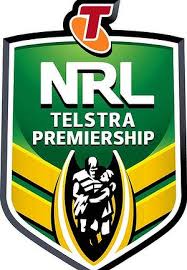








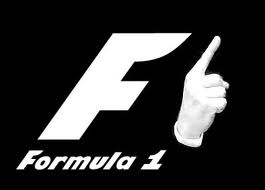




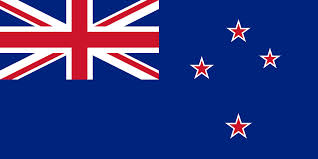


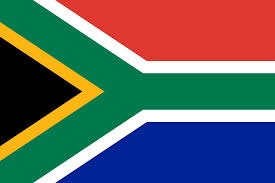





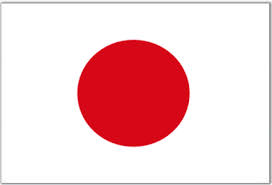
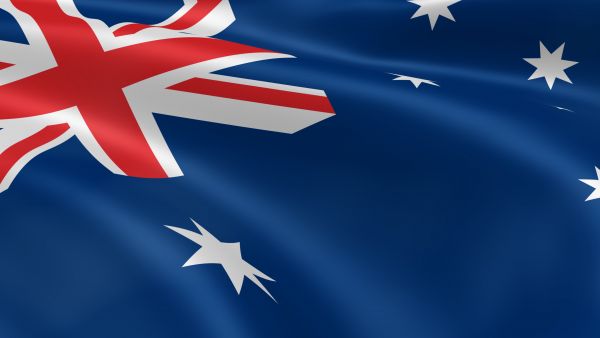




.jpg)

.jpg)

 Major Events Looming. In past years, the RICOH Women’s British Open signaled the end of the major championship season for the LPGA. This season, it serves the fourth of five majors on the LPGA’s calendar with The Evian Championship coming up in September. For many U.S. and American players, another big tournament – The Solheim Cup – looms large just two weeks from now. So with all the big events on the LPGA docket this year, how do players peak at the right times?
Major Events Looming. In past years, the RICOH Women’s British Open signaled the end of the major championship season for the LPGA. This season, it serves the fourth of five majors on the LPGA’s calendar with The Evian Championship coming up in September. For many U.S. and American players, another big tournament – The Solheim Cup – looms large just two weeks from now. So with all the big events on the LPGA docket this year, how do players peak at the right times? Talked about Tweet: It wasn’t long into Inbee Park’s press conference on Tuesday afternoon when someone asked about one of the Tweets that the 25-year-old sent out last week during her trip to Korea. Of course, when you tweet a picture of yourself with a Ferrari, that’s bound to draw some attention.
Talked about Tweet: It wasn’t long into Inbee Park’s press conference on Tuesday afternoon when someone asked about one of the Tweets that the 25-year-old sent out last week during her trip to Korea. Of course, when you tweet a picture of yourself with a Ferrari, that’s bound to draw some attention. “With my Ferrari FF♥” -- @InbeePark wrote on July 24.
“With my Ferrari FF♥” -- @InbeePark wrote on July 24.








